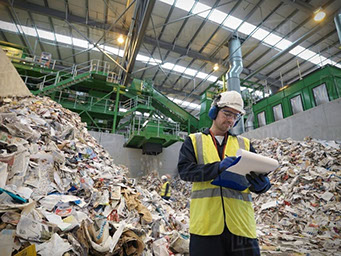Baling cardboard has become an integral practice for companies aiming to optimize their waste management systems and promote environmental sustainability. The baling procedure compresses loose cardboard into compact, manageable bales that are easier to store, transport, and recycle.
Baling Cardboard
The core elements of baling cardboard play a vital role in contemporary waste management and recycling efforts. Various industries are increasingly acknowledging the benefits of incorporating effective cardboard baling systems in their operations.
Equipment and Technology
The advancement of baling technology has revolutionized the way businesses manage their cardboard waste. Modern balers are equipped with features such as automatic tie-off systems and pressure monitoring functionalities. These machines can handle hundreds of pounds of cardboard per hour, producing uniform bales that enhance storage efficiency and transportation logistics.
Choosing the right baling equipment depends on several factors, including the size of the facility, the volume of cardboard generated, and specific operational needs. Vertical balers are ideal for smaller setups, whereas horizontal balers are more suitable for high-volume operations processing cardboard continuously.
Innovative control systems in current balers enable operators to track performance metrics, schedule maintenance, and adjust baling settings based on different materials. This technological advancement ensures consistent bale quality while reducing downtime.
Operational Best Practices
Effective training and established operating procedures are critical for successful cardboard baling operations. Employees must be knowledgeable about proper loading methods, safety guidelines, and maintenance practices to ensure optimal baler functionality.
Conducting regular inspections of baling equipment, sorting materials correctly, and keeping work areas clean contribute to smooth operations. Implementing a structured approach to cardboard collection and processing helps avoid bottlenecks and facilitates a seamless workflow within the facility.
Documenting processes and instituting quality control measures aid in maintaining consistency in bale production while meeting recycling facility standards.
Economic Benefits
The financial benefits of baling cardboard go beyond mere recycling revenue. Compressed bales occupy significantly less storage space, which lowers warehouse expenses and enhances space use for primary business functions.
Transportation costs are dramatically reduced when shipping compacted cardboard bales compared to loose materials. Numerous facilities have reported savings between 60-75% on hauling costs after adopting effective baling practices.
Recycling firms often provide better rates for properly baled cardboard, creating an additional income stream for organizations dedicated to efficient recycling initiatives.
If you’re looking for cardboard recycling services that feature state-of-the-art sorting and baling machinery, along with opportunities for generating revenue from recycled cardboard, reach out to Integrity Recycling Waste Solutions at (866) 651-4797.
Frequently Asked Questions
What size baler do I need for my facility?
The correct baler size is determined by your daily cardboard output, available space, and operational needs. Smaller facilities typically benefit from vertical balers, while larger operations may require horizontal balers.
How can I maximize the value of my cardboard bales?
Ensure consistent bale quality, adequate compression, and proper material sorting. Develop relationships with trustworthy recycling partners and stay updated on market trends.
What safety measures should be implemented around baling equipment?
Proper training, clear operating procedures, routine maintenance, and suitable personal protective gear are essential. Ensure adherence to all relevant safety regulations.
How often should baling equipment be maintained?
Regular maintenance intervals depend on usage frequency and manufacturer’s guidelines. Daily checks and occasional professional servicing help avert malfunctions.
What are the key factors in choosing a recycling partner?
Look for stability in pricing, reliability in pickup, equipment assistance, and expertise in the market. Confirm proper licensing and compliance with environmental standards.
If you’re looking for cardboard recycling services that feature state-of-the-art sorting and baling machinery, along with opportunities for generating revenue from recycled cardboard, reach out to Integrity Recycling Waste Solutions at (866) 651-4797.

